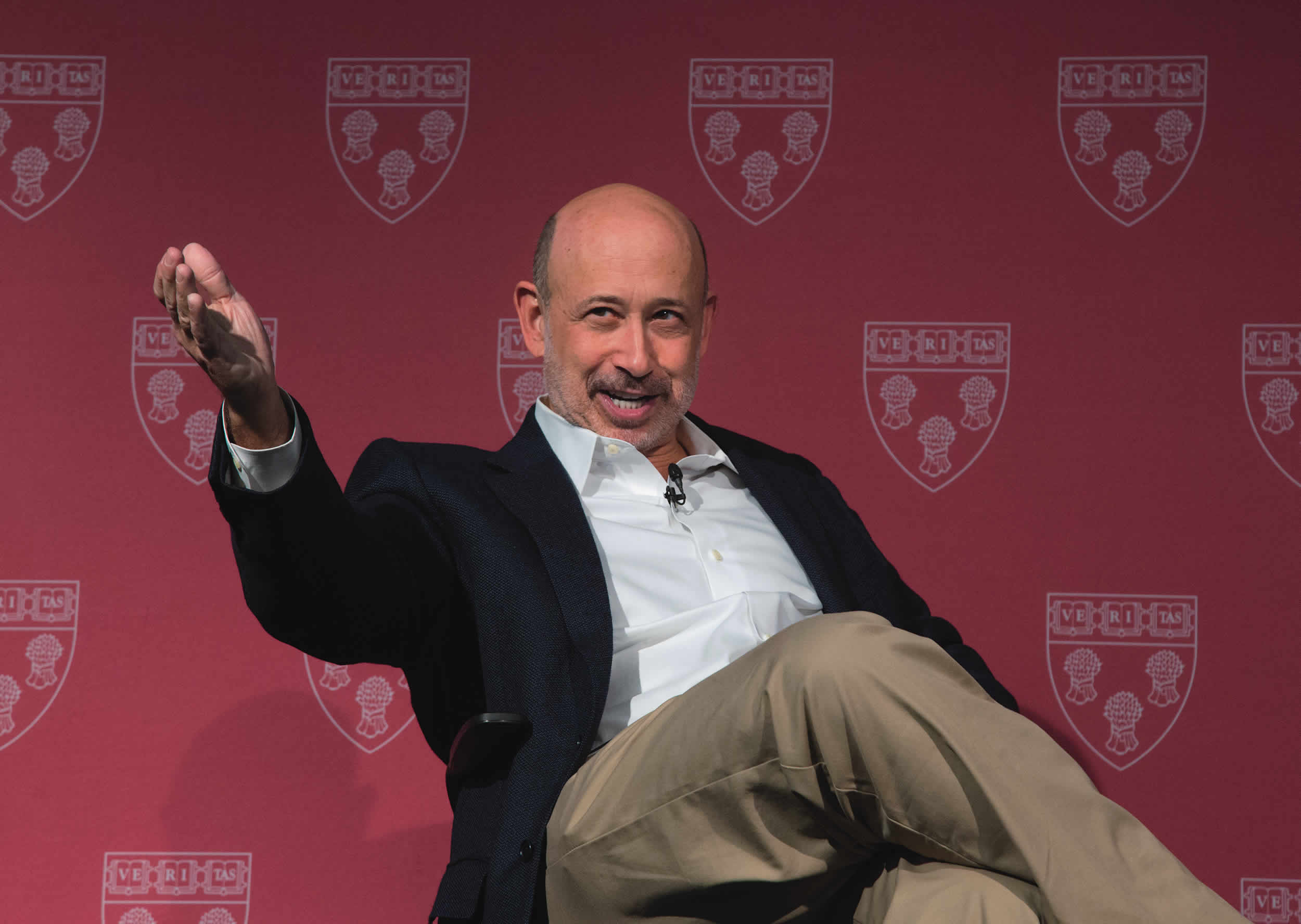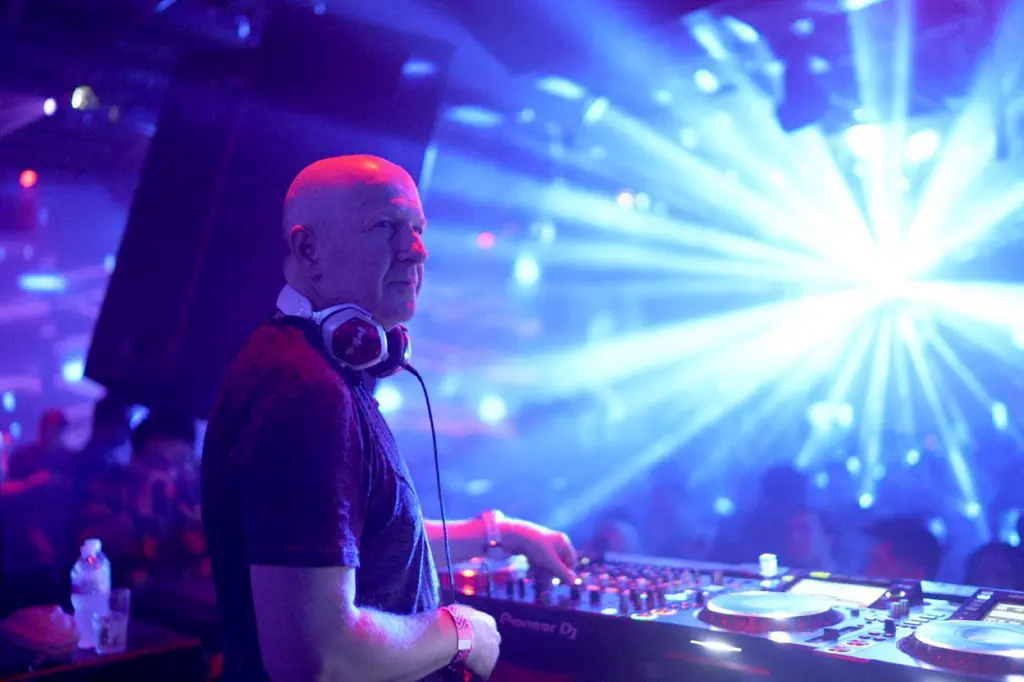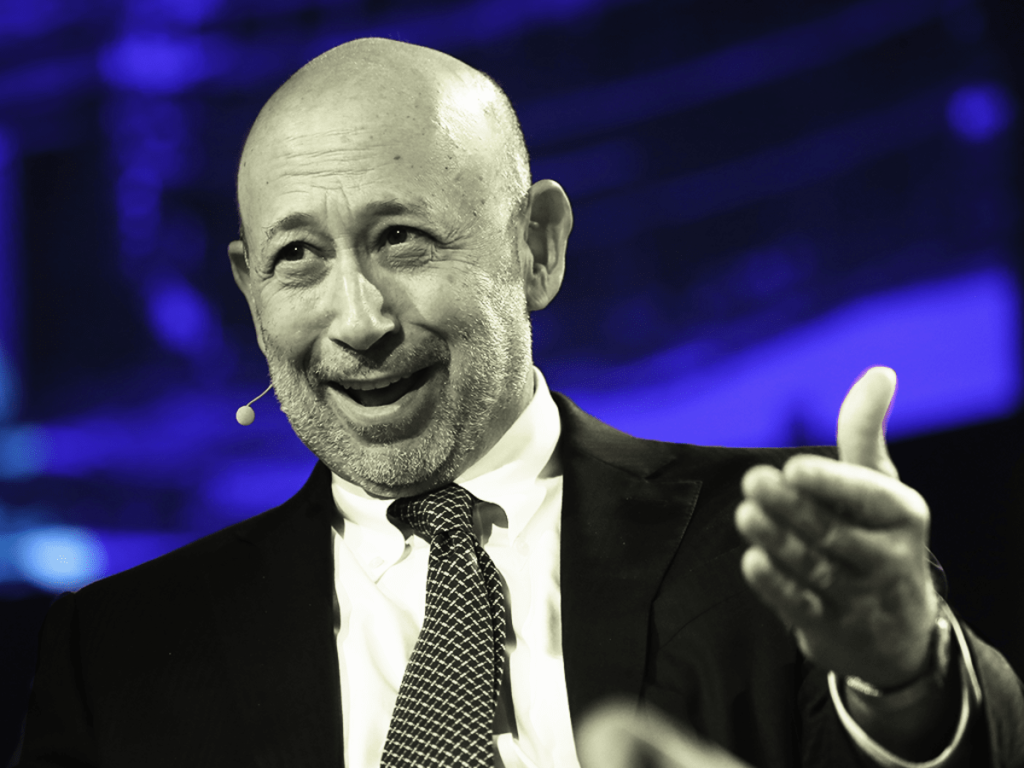Former Goldman Sachs CEO Lloyd Blankfein says the friction between him and David Solomon is “so overplayed” and that he is planning to have dinner with Goldman’s current and embattled chief executive this weekend to further bury the hatchet, The Post has learned.
His remarks to The Post come amid persistent speculation that Blankfein, who anointed Solomon as head of the prestigious investment bank back in 2018, now wants his former protege out amid a long and unusual dispute between two of Wall Street’s biggest names.
Blankfein, in private conversations, has been critical of Solomon’s management of the firm and its declining share price amid a tough Wall Street operating environment. Blankfein has also taken issue with the optics of Solomon’s hobby as a high-end DJ, where he spins records at swanky parties in the Hamptons under the moniker DJ-DSol.
But the ill will between the two appears to be a thing of the past, Blankfein tells The Post. While conceding that his criticism of Solomon’s “DJing” is real, he said the two have patched up their relationship so much that they are now in regular contact.
“You should know David and I speak regularly, twice in the last week or so,” Blankfein said, adding: “I am having dinner with him this weekend and I am going to an event at his home later this month.”

A Goldman spokesperson said: “I think what’s been written has always been overblown, to be honest.”
The rekindled bromance between Blankfein and Solomon comes after a nasty spat that has been the talk of Wall Street in recent months. Blankfein, after steering Goldman through the 2008 financial crisis, announced his retirement in 2018. Following an internal bake-off, the former commodities trader selected Solomon, a top investment banker, to run the firm.
“David is the right person to lead Goldman Sachs. He has demonstrated a proven ability to build and grow businesses, identified creative ways to enhance our culture and has put clients at the center of our strategy,” Blankfein said at the time.
No long thereafter, the relationship soured, people close to the matter told me. Blankfein didn’t just hate Solomon’s DJ-ing (he described it as unseemly, I am told), but he was critical of the way Solomon ran the firm, believing it had contributed to Goldman’s sagging stock price. Former Goldman execs say Blankfein also felt that Solomon snubbed him by not asking his opinion on strategic moves, even though he had an office inside the building and was just a phone call away.
History shows it’s never a good idea for CEOs to make enemies of their predecessors. In 2001, Jack Welch picked Jeff Immelt as his successor to run General Electric, lauding him as the guy to lead GE into the future. Immelt soon got on the wrong side of Welch, and Welch became a critic. Immelt was eventually ousted by his own directors when Welch’s criticism proved all too accurate, and painful for investors.
Likewise, the reason why Bob Chapek is no longer CEO of Disney, and Bob Iger is back, is because the Iger-Chapek partnership similarly fell apart. Iger’s criticisms of Chapek’s handling of various controversies and business moves added to the internal dissension over his management style. Eventually the board stepped in and fired Chapek after he served less than three years as CEO.

Solomon’s supporters say the comparison to either Immelt or Chapek is unfair; some of Goldman’s current problems are a function of a broader decline in Wall Street business conditions. The stock is off this year, but since Solomon became CEO, shares are up 40%.
Still, Solomon has ruffled feathers at the company because he has restructured parts of the investment business, and that has cost jobs. He’s been criticized as dictatorial and doesn’t seek consensus as Blankfein did from the firm’s powerful class of “partners” or its most senior executives. A number of top executives have recently left Goldman amid the discord.
Maybe most of all, Solomon’s an old-line investment banker, and during last year’s bonus round, he diverted sales and trading profits to pad banker bonuses. The move sparked what one financial services CEO described as a “civil war” inside the bank between the powerful trader and investment banking departments.
People close to Goldman say Solomon understood the danger in having Blankfein adding fuel to the well-documented internal dissension, which is why he sought a rapprochement. Blankfein remains a revered figure with Goldman’s traders.
At least for now, Goldman’s board remains committed to keeping Solomon at the helm, but the negative press coverage of the firm’s internal strife has been vexing to board members and top executives, so much so that Solomon has begun a charm offensive to repair his image.
That includes controlled media appearances. On Thursday in a CNBC interview, Solomon said, “It’s not fun, obviously, watching some of the personal attacks in the press. I don’t recognize the caricature that’s been painted of me.”
Solomon has been meeting with small groups of employees for private dinners to show his kinder and gentler side, and has sought advice on how to change the optics of his image from associates outside the firm. The advice that came back: Spend less time showing your love of DJing and more time meeting with top clients.
One sign that things might be looking up for Solomon: Goldman last week was said to have an 80% to 85% office attendance rate, something of an outlier. Attendance more regularly hovered around 60%. Solomon has been demanding people return to the office to boost productivity since COVID subsided in 2021.
Maybe Lloyd put in a good word with the troops.


